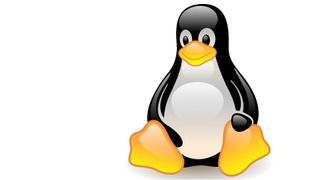This long-lost Linux distro is making a big comeback
Slackware came into existence barely two years after the Linux kernel

Slackware, one of the oldest Linux distros, has put out the beta of its upcoming 15.0 release, nearly a decade after version 14.0.
Slackware was created by Patrick Volkerding and had its first release almost three decades back, in 1993. This makes the distro one of the two oldest Linux distros that are still actively maintained (the other being Debian).
While Slackware is still actively developed behind the scenes, the distro doesn’t put out releases as often as some of the current crop.
- Check our collection of the best Linux distros for business
- Here’s our list of the best Linux distros for developers
- And, these are the best laptops for developers
Most modern distros, such as Ubuntu and Fedora, release every six months, but Slackware follows the “release when it’s ready” philosophy. No surprise, then, that the distro’s downloadable images last hit the mirrors sometime in 2016 with Slackware 14.2.
Upcoming release
Designed firmly for experienced Linux campaigners, Slackware’s charm is that it is the most Unix-like Linux distro.
It adheres to the Keep It Simple, Stupid (KISS) design philosophy, which enables advanced users to build their Linux desktop or server exactly as per their requirements without any bloat and unnecessary components.
The first hints of a new Slackware release came earlier this year in February with the release of the first alpha release of Slackware 15. In the two months since that release, the developers have updated several packages, enough for Volkerding to tag this release as beta.
Are you a pro? Subscribe to our newsletter
Sign up to the TechRadar Pro newsletter to get all the top news, opinion, features and guidance your business needs to succeed!
“I'm going to go ahead and call this a beta even though there's still no fix for the illegal instruction issue with 32-bit mariadb. But there should be soon,” noted Volkerding in the release notes.
According to the changelog, packages in Slackware 15.0 Beta are built with the GCC 10.3 compiler, and the release ships with the Linux 5.10.29 Long Term Support (LTS) kernel.
- Here are the best Linux laptops for running Linux
Via The Register
With almost two decades of writing and reporting on Linux, Mayank Sharma would like everyone to think he’s TechRadar Pro’s expert on the topic. Of course, he’s just as interested in other computing topics, particularly cybersecurity, cloud, containers, and coding.
Most Popular



